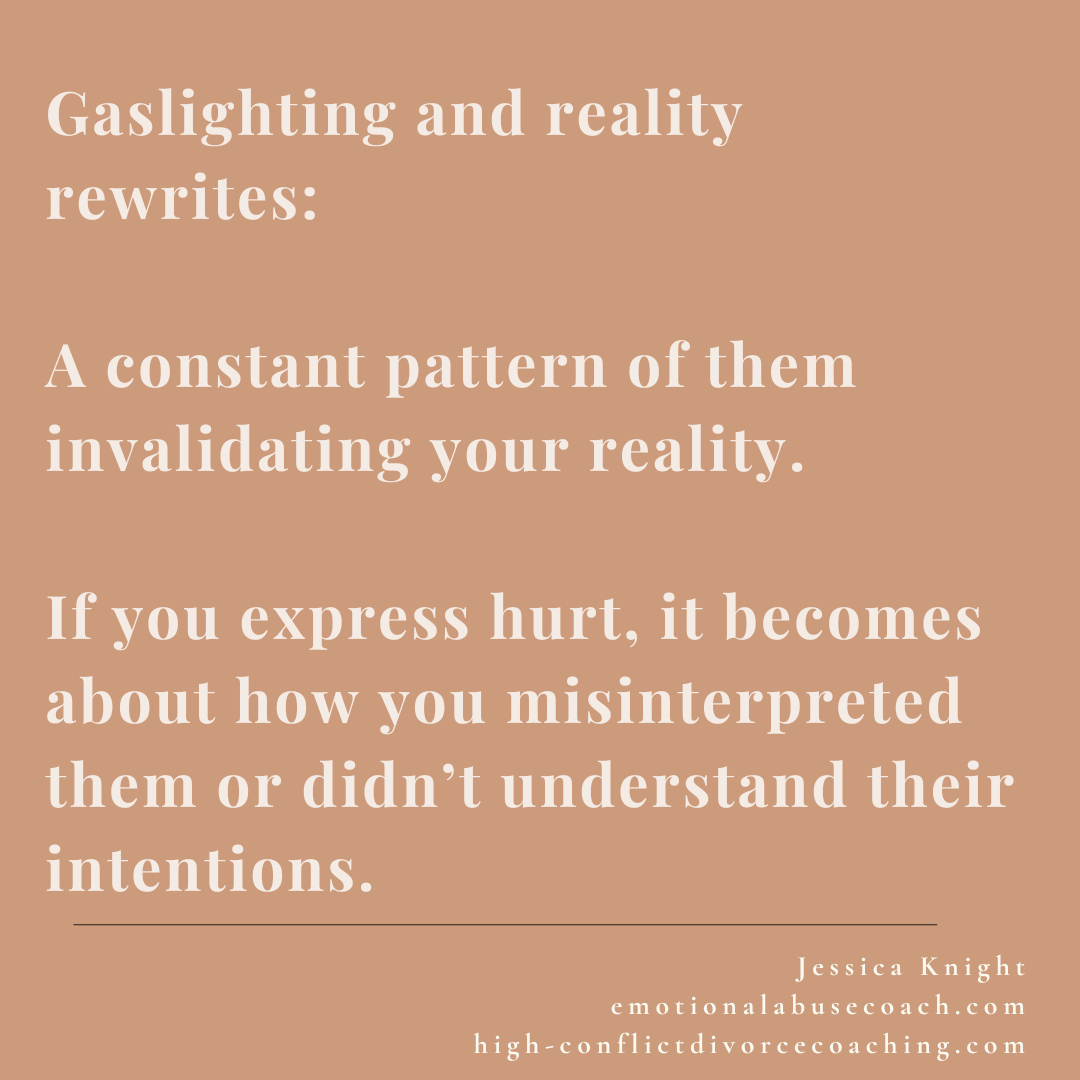Gaslighting isn’t always obvious. It doesn’t always look like someone outright denying something that happened or insisting that you’re crazy. More often, it’s the slow, insidious manipulation that leaves you doubting yourself, your needs, what you think, and your ability to make decisions.
Recently, I worked with a client who struggled to see if she was being gaslit. As we unpacked a conversation, the patterns became clear.
She was overwhelmed and her partner kept asking if he could help.
She asked her partner to bring home quarters for laundry.
He forgot.
When she asked if he had them, he didn’t just acknowledge it—he turned the conversation into something else entirely.
“Oh my God, I forgot.”
“Why do you need them today? Can’t you just do it tomorrow?”
“I’m not perfect, you know. My day was busy.”
Suddenly, she wasn’t just dealing with the fact that he forgot the quarters and that she could not do her laundry. She was now managing his emotions, justifying her needs, and defending why she even asked in the first place.
This might seem small, but it’s a perfect example of how gaslighting and emotional abuse work. Instead of a simple, “I’m sorry, I understand you could only get the laundry done today,” the situation was reframed in a way that made her feel unreasonable, needy, and demanding.
At first glance, these interactions might seem like forgetfulness, miscommunication, or just an “off” moment in a relationship. But when they happen repeatedly, a pattern forms. Usually, “quarters” is just an example of not getting help anytime she asked.
My client noticed that this same dynamic played out in bigger situations—when asking for help with anything, when setting boundaries about time, even when communicating basic needs.
What she learned was this:
Every time she asked for help, she didn’t actually get help. Instead, she got resistance, excuses, and emotional exhaustion.
Over time, she stopped asking. She learned that help wasn’t help, and she was better off struggling alone than being made to feel crazy for having needs.
The gaslighting didn’t stop there. When she finally got frustrated, it was flipped on her—“Why are you making a big deal out of this?” “Your expectations are too high.” “You’re overreacting.”
Sound familiar?
And that’s the thing about gaslighting: it doesn’t have to be dramatic or overt. It’s the slow chipping away at someone’s confidence, making them doubt their needs, their memory, their reactions.
This is how emotional abuse operates—it’s insidious, subtle, and deeply damaging.
This is a textbook example of coercive control disguised as everyday forgetfulness. At first glance, it might seem like an innocent mistake, but the response is what reveals the deeper pattern.
A healthy response would have been, “I forgot, I know you could only do laundry today. I will grab them tomorrow. I am sorry.” That’s it. Instead, he immediately shifts the blame, makes her feel like she’s overreacting, and forces her to manage his emotions instead of addressing the actual issue.
This is intentional, even if he doesn’t realize it on a conscious level. Over time, these repeated interactions train her to suppress her needs to avoid conflict. The real message isn’t “I forgot”—the real message is “Your needs are inconvenient to me, and I will make you suffer emotionally for expressing them.”
That’s coercive control.

Because this isn’t just about quarters. That’s the trap people fall into when trying to analyze abuse—they focus on whether the individual action was “bad enough” instead of looking at the pattern.
The real issue here isn’t forgetfulness either; it’s that every time she asks for something, she ends up feeling like she’s the problem.
That’s the manipulation. He blames her if she is overwhelmed and doesn’t ask for help. He also blames her if she is upset when the help was not really help.
The Circular Conversations That Wear You Down
This is important because a sign of Gaslighting is also: circular conversations that wear you down. This is a huge red flag in any toxic dynamic. If every disagreement turns into a marathon debate where the only way out is for you to give up or apologize, you are being manipulated.
One of the biggest signs of gaslighting is the never-ending conversation. My client described how every discussion felt like running in circles—where the only way out was to either give up or admit it was all her fault.
If she tried to set a boundary, the conversation would shift to why she was being unreasonable.
If she tried to express frustration, she’d end up apologizing for how she brought it up.
If she tried to stand firm, the discussion would drag on until she was too exhausted to fight anymore.
That’s not communication. That’s control.
And it doesn’t stop with small things like quarters. It bleeds into major life decisions—who’s in charge of plans, whose needs come first, even how holidays are spent.
When you’re constantly defending your perspective, when the goalposts keep moving, when you feel like no matter what you say, it’s wrong—that’s gaslighting.
The Real Question: Is This Relationship Built on Love or Power?
So if you’re wondering whether you’re being gaslit, ask yourself:
❌ Do I feel like I have to justify my needs all the time?
❌ Do conversations leave me feeling drained and unsure of myself?
❌ Do I feel like I have to manage their emotions before I can even address my own?
❌ Do I find myself questioning whether my needs are “too much”?
❌ Have I stopped asking for things altogether because I’ve learned it’s easier that way?
If you answered yes to these, it’s not in your head. It’s not that you’re too sensitive or expecting too much. You are seeing the truth—maybe for the first time.
And that truth is this: You are not crazy. You are not asking for too much.
I will be going over Gaslighting all month on Substack. I’ve created a range of resources—from personalized coaching sessions and self-study courses to insightful guides—all designed to help you identify gaslighting, set firm boundaries, and nurture relationships built on genuine respect. These offerings are more than just tools; they’re stepping stones toward a life where your voice is truly heard, your needs are met, and you feel empowered to demand the love you deserve.
When you’re ready to break free from the cycle of emotional manipulation and embrace relationships defined by trust and mutual care, visit emotionalabusecoach.com

